By Elaine Favero for Enlivening Edge Magazine
There is a lot of work to be done. Human beings, whose brains are connected to respond to each other, are being separated from each other and from nature by economic and technological changes, as well as ideology.
Profound separation is leading the planet to social and ecological collapse. Collaboration within the sense of community holds a key. “Community” refers to the quality of what is common.
The ‘sense of community’ concept emerged in the 1970s and refers to the feeling of being part of a network of mutual support relationships, always available and from which interdependence relationships are created. It consists of the perception of similarities with others, shared social identity, influence, cohesion and union of a group, affection relationships, sharing feelings and responsibility.
Without sense of community there is less energy for initiatives or evolutionary leadership, and people are more inclined to abandon causes that are important for themselves and their wellbeing. Isolated movements lose strength and have an important collateral damage: the loss of collective intelligence.
Collective intelligence is distributed among all individuals, not restricted to a few. Everyone has something to offer; there is no one who cannot contribute in some way. The basis and objective of collective intelligence is the recognition and mutual enrichment (self-development and strengthened relations) of people.
Precisely this exchange, the potentiation of collective intelligence, is the key to solving the serious problems— globally connected—that we face today. As these issues are complex, it would be impossible to resolve them in a linear (rational) or hierarchical manner.
It is necessary to work as a net, to exchange resources and information, and to mobilize a diversity of skills, knowledge and experiences of different cultures, interests, and needs.
Collective intelligence is networked, and offers freedom from narrow ways of thinking, feeling, and acting. It expands the spectrum of possibilities and perspectives to the extent that it creates adequate conditions so that people interested in coming together for a common purpose, such as defending a project, a cause or interest, have the maximum tools to meet, unite, organize, and generate a positive impact.
“Collective intelligence is what will offer the basis to protect, expand and preserve the quality of life in times of challenge”. (Lama Padma Samten)
When linking collective intelligence to the world of organizations, research points out that professionals consider themselves benefited by performance in teams with diversity and sense of community:
-
- better reception, negotiation and communication processes;
- possibility of humanizing the professional while humanizing the service provided;
- collective stress coping strategies; and
- decreased levels of burnout.
Belonging to a team with a sense of community affirms aspects of the professional’s identity and self-esteem and, recursively, expands the reality they seek to build for themselves and for others.
Now, within all the challenges presented to us worldwide (covid 19 being only the most recent one), the importance of communities has become even more evident. Among others, we urgently need communities of healers and changemakers, people with the same goal of causing positive (sustainable and regenerative) impact, while transforming organizations and governments inside out.
For that scope, we are talking about communities of people willing to lead us to change, people whose work is focused into changing the current status of things, making things better. We are talking about expanding networks and increasing the empowerment of people, wherever they are, to foment the rise of other communities, everywhere.
As the collective intelligence of these healers and changemakers rises, the world gains more tools, knowledge and power to reach people, at a deep level that requires time, self-reflection, and inner transformation.
We are talking about changing the perspective through which the critical mass of the world exists and acts. Changing the way we organize. It’s a challenging, beautiful and extremely necessary task. We are talking about coexistence. About peace, fairness, and abundance. About compassion and distributed authority. About changing everything.
That is why healers and changemakers are not only dreamers. They are people with broad visions, resilience, curiosity about how things could be different, along with proactivity to lead and make real positive impact.
There are some initiatives all over the globe that are already acting in a sense of making things different, empowering people, organizations, and communities, and giving space for the birth of collective intelligence at various scales.
The work performed by these initiatives is disruptive in terms of methodologies, distribution of authority and self-accountability, improving the quality of people’s work, life and inter-relationships.
Therefore, there is an increase of happiness, sense of meaning, belonging and impact, that favors creativity, productivity, and engagement. Healers and changemakers have the power of getting into organizations and transforming them inside out, as well as reaching people (leaderships in communities and organizations) that are willing to try something different in order to get into action and change stuff.
Here are some organizations/communities of healers and changemakers originating in Brazil, Colombia, and the US for you to know and join!
The forest is a Brazilian network of consultants, teachers, and therapists, a community of professionals involved in the regeneration movement of organizations, answering to a wide demand for humanization, adaptation, and evolution of companies and organizations that feel the need for transformation. The governance is sociocracy based. They understand that there can’t be development of the whole without the development of the parts and vice versa.
So in that sense, and observing the “walk the talk” principle, community members often offer workshops and classes on their learning and methodologies to the other members, which serves to improve everybody’s work and their self-development. There are also sessions to embrace the members’ feelings and vulnerabilities.
Within the members there is a specific circle to “take care of the people who take care”. Collective intelligence is their biggest input, and the diversity of participants got together a generous constellation of methodologies, training paths, and experiences.
The references are multiple, but they orbit common principles between complexity (Uncertainty, Polarity, Emergency), regenerative culture (Rhythm, Cycles, Flows, Evolution, Synergy), Systemic Laws (Order, Belonging, Balance between giving and receiving) and Sociocracy (Improvement responsibility, Transparency, Effectiveness, Empiricism).
Coonecta – Cooperativismo e Inovação
Cooperative companies, which have ownership and governance shared among all their members, are reinventing themselves for the Digital Economy. The main movement in this sense is called platform cooperativism, which proposes to adapt the business model of “big tech” platforms such as Uber, Amazon, and Google, to a format where wealth and governance are shared.
In Brazil, Coonecta – Cooperativismo e Inovação has acted in this direction, betting on education, sharing experiences and professional networking to create fairer cooperative platforms. Among the actions are the distance-learning portal, international exchanges, meetups and events that connect communities that have sharing as a central element of their values. The idea is to connect these communities to cooperatives, promoting the emergence and development of cooperative startups.
#Togetherpodemos is a journey to create a better world in 3 main steps:
1 Spread valuable content on social media
2. Inspire people to get involved
3. Use this inspiration to act.
We have evolved after
-
- traveling 17 months to 70 countries;
- delivering +8,000 bracelets to scientists, artists, businessmen, activists, diplomats, Nobel laureates, and the Pope;
- being a guest lecturer at Harvard, MIT, THU, HSE, IED, among others;
- reaching +1,500,000 people on social media (Instagram).
We evolved into Circolo: a collaborative multidisciplinary team of 28 volunteers from 14 countries, 6 international mentors, 1 impact investor, and 2 strategic allies (Facebook, Thomson Reuter foundation) committed to a future where making a positive impact is the norm. You can join the community as a volunteer, a co-worker, or a co-owner.
Radical is an initiative that empowers people, communities, and organizations into thinking differently, breaking free. In this sense, it organizes workshops and initiatives such as the event “Chapada – towards a sustainable future”, held this year one week before the lockdown started in Brazil. The event was a two-day workshop with a call for leaders and participants of organizations of Chapada dos Veadeiros region who wanted to help create a positive impact together.
Through the use of the Radical Impact Framework, the workshop helped local leaders get new ideas and ways of working together, and attend to the emergent needs. It was a great step towards creating new ways of collaborating and taking action to build community vision for the future of Chapada.
Are you a dreamer? Join us! Or any other community that suits you better. Let’s get together! <3
https://enliveningedge.org/ee-community-conversations/
https://www.instagram.com/theforest.rede/?hl=pt-br
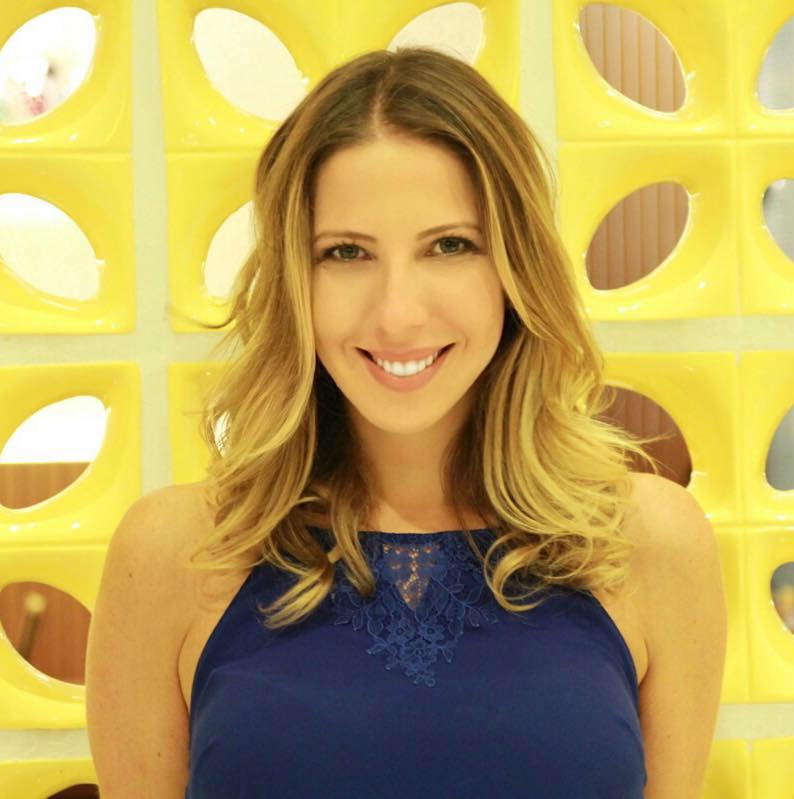 Elaine Favero is a coach, facilitator, and learning designer, Co-creator at Iandê and Founder of Atma Pessoas, member of The Forest and Radical, former tax lawyer, and forever a yoga practitioner. She found her joy in life by helping people and organizations raise their level of consciousness. Get in touch [email protected]
Elaine Favero is a coach, facilitator, and learning designer, Co-creator at Iandê and Founder of Atma Pessoas, member of The Forest and Radical, former tax lawyer, and forever a yoga practitioner. She found her joy in life by helping people and organizations raise their level of consciousness. Get in touch [email protected]
Featured

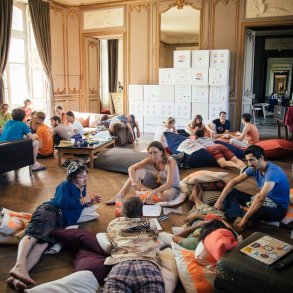
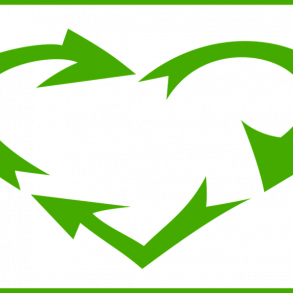
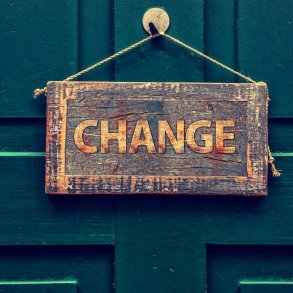
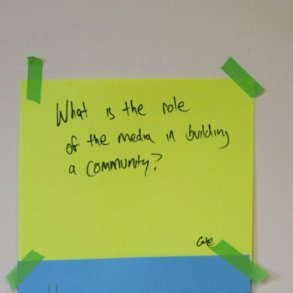
AWE-some Elaine. I so appreciate your leadership abilities your passion and your “Being the change you want in the world.” Keep up the great work and keep on dreaming. In Joy